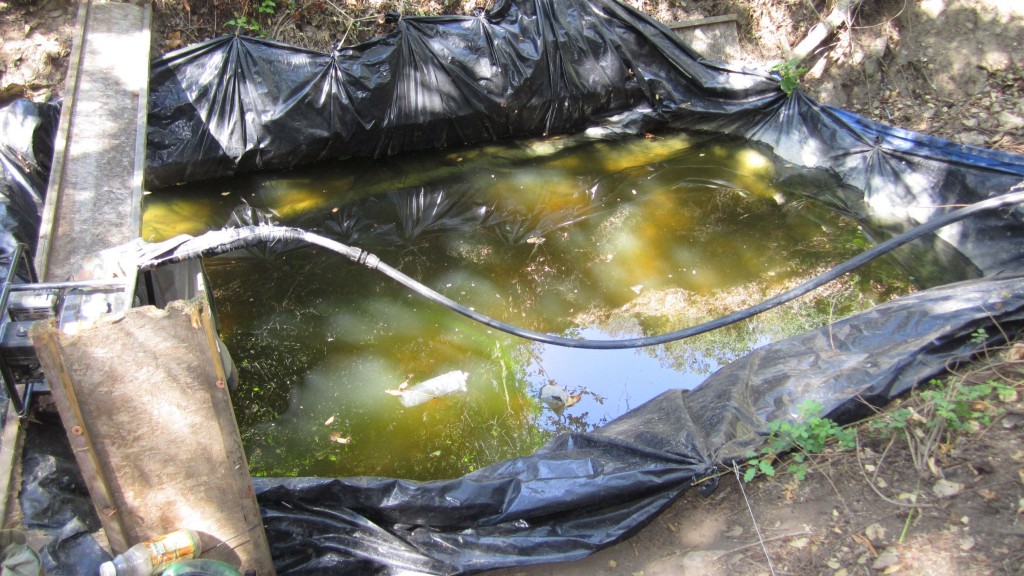California voters on Nov. 8 will decide whether to legalize recreational marijuana use. If it passes, even some supporters worry new regulations won’t stop the environmental damage caused by illegal marijuana farms that could continue to operate.
Proposition 64, or the Adult Use of Marijuana Act, would legalize the recreational use of marijuana in California and allow adults to grow, consume and possess small amounts of the drug. It also includes environmental regulations that require marijuana cultivators to adhere to strict water, pesticide and land-use policies.
Currently, the majority of marijuana consumed by Americans is grown in California.
Sgt. Rich Glennon of the Santa Clara County Sheriff’s Office said that dealing with the environmental damage caused by illegal marijuana cultivation is a huge challenge for the Marijuana Eradication Team, which is responsible for removing illegal marijuana grows from private and public lands in Santa Clara County.

“People come in from out of state and set up camp on public lands, or private lands without the knowledge of the owner,” Glennon said in a telephone interview. “They dam creeks, grade land, steal water, throw fertilizers in the creek and dump trash.”
In the last four years, the Marijuana Eradication Team has removed nearly 19 tons of trash and seized over 300,000 marijuana plants from illegal grow sites in Santa Clara County, according to Glennon.
Statewide, the National Forest Foundation estimates that 9,000 pounds of rodenticide, 70,200 pounds of fertilizer, 726 miles of irrigation line, 4,800 gallons of insecticide, and 300 tons of garbage are deposited in California forests annually from detected and undetected illegal marijuana grows.
But critics argue that although Proposition 64 introduces the first environmental regulations to the recreational cannabis industry, law enforcement will not be able to adequately police even the existing marijuana grow sites, allowing environmental degradation to continue. Legalization on a federal level, some say, is the only way to encourage “green” growing practices of marijuana.
Proposition 64 specifies that a new Bureau of Marijuana Control will draft regulations related to “environmental impacts, natural resource protection, water quality, water supply, hazardous materials and pesticide use.” These regulations are expected to mirror the ones that some counties already follow for the cultivation of medical marijuana.
Kevin Jodrey, who owns Wonderland Nursery, a medical marijuana farm in Humboldt County, said that a lot of the local marijuana farmers will continue to grow but won’t apply for a license to be a legal cultivator of recreational marijuana.
Jodrey said he paid hundreds of thousands of dollars on infrastructure improvements to make sure his farm was up to the environmental standards for cultivation of medical marijuana.
“You’ll see many people stay illegal because they just can’t simply afford to comply with regulations,” Jodrey said in a telephone interview.
Illegal grows will thrive as law enforcement will not be able to keep up, according to Anthony Silvaggio, a professor of environmental sociology at Humboldt State.
“It is ludicrous to think that we can enforce all the growers in California that are doing the bad stuff,” Silvaggio said. “We already have 4,000 outdoor growers that we know about [in Humboldt County]. We don’t have 4,000 police to go and police these folks.”
Sgt. Glennon agrees and expects the work of the already challenged Marijuana Eradication Team to increase if Proposition 64 passes.
Colorado, which legalized marijuana in 2012, still has a significant amount of marijuana illegally grown in national forests and state parks. According to a report written by the Colorado Department of Public Safety, over 25,000 marijuana plants were seized from state land in 2015.
However, proponents of Proposition 64 in California believe that the tax revenue collected from Proposition 64 will give law enforcement the resources they need to effectively police illegal marijuana cultivation. According to Diane Goldstein, a member of Law Enforcement Against Prohibition, the measure will raise as much as $200 million per year for state and local law enforcement to police illegal grows among other enforcement measures.
“California voters have the opportunity … to give public safety officers the resources needed to enforce the law,” Goldstein testified to the California State Legislature in May.
Ultimately, critics of the environmental policies say they aren’t against Proposition 64, and agree that California needs environmental regulations for cultivation. Their main point is that federal legalization is the only way to decrease the pressure on California’s natural resources to meet the demand of a big portion of the rest of the county.
Scott Greacen, executive director of Friends of the Eel River which advocates for the health of ecosystems affected by marijuana cultivation, said that Californians will continue illegal marijuana grows on the black market as long as federal prohibition exists.
“I don’t think that the State of California is going to be able to regulate the legal market in a way that prevents people from growing pot here and shipping it to Cleveland because we have 30 years of experience doing that,” Greacen said. “But legalizing in California is hopefully the first step in ending federal prohibition.”
According to a report by the Central Valley California High Intensity Drug Trafficking Area, California supplied approximately 79 percent of the country’s marijuana in 2009. As long as the price for illegal marijuana is high, it is worth it for growers to continue growing illegally, Silvaggio said.
“Federal prohibition is the number-one cause of environmental problems in California, not bad growers,” Silvaggio said. “The inflated price makes it worth it to grow as much as you can in the easiest way possible.”
